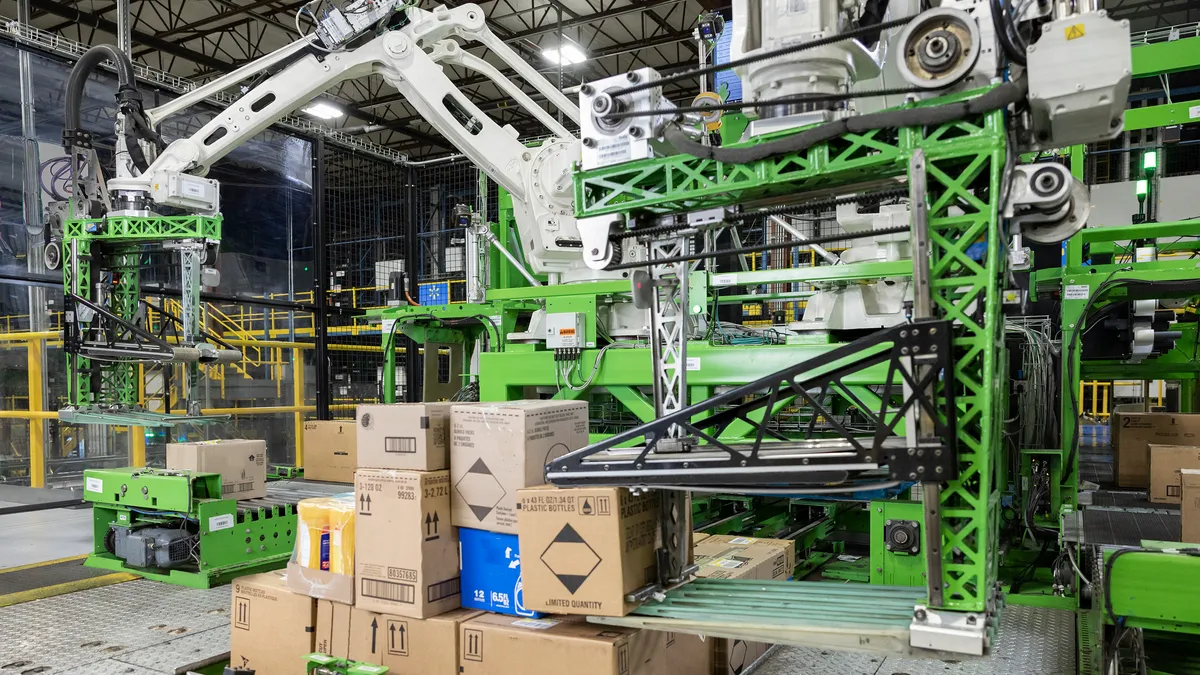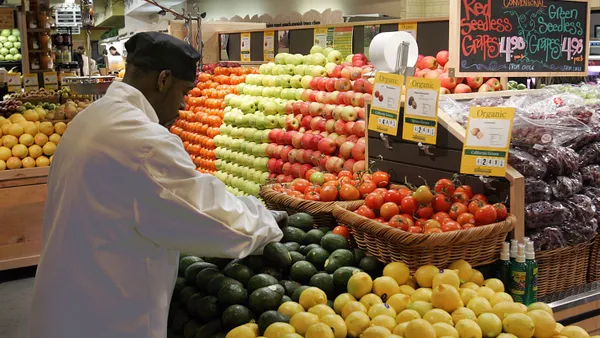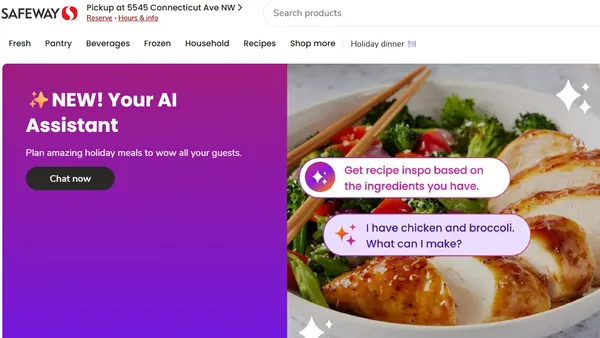Dive Brief:
- Grocery wholesaler Associated Food Stores (AFS) announced Monday it has teamed up with Symbotic to bring the technology provider’s automated warehouse system to its distribution facility in Utah, per a press release.
- AFS, which serves nearly 450 retailers across nine states, said the use of the artificial intelligence-powered, robotic technology will increase efficiency and reduce costs.
- AFS is investing in autonomous warehouse solutions at a time when many retailers are turning to technology that can make their picking and packing operations speedier and more efficient.
Dive Insight:
AFS and Symbotic said the technology will improve overall supply and delivery to stores, as well as help expand selection. They also framed the tie-up as a way to boost worker satisfaction.
“We believe implementing the Symbotic system creates great opportunities for our distribution center team members to grow their skill sets and expand their future opportunities with the company,” Glen Keysaw, AFS’ vice president of distribution, said in a statement.
Keysaw said that all current workers at the distribution center will have jobs following the arrival of the technology — a statement likely aimed at assuaging concerns that automation will replace workers.
Symbotic’s automated system relies on a fleet of vision-enabled, autonomous robots that whiz around a warehouse to pick and pack products in high-density, mixed SKU pallets.
“It’s a strategic investment that can increase efficiency and enhance our ability to service our member retailers,” Roger White, AFS’ executive vice president and chief operating officer, said in a statement.
AFS is the latest partner to link up with Symbotic. In March, United Natural Foods, Inc. (UNFI) said it teamed up with the company to bring the AI-powered robotics to its distribution center in Centralia, Washington. Last year, Walmart announced plans to deploy Symbotic’s technology to all 42 of its regional distribution centers over the next few years as part of a broader supply chain upgrade.
While the adoption of automated e-commerce fulfillment has been slow in the grocery industry, that technology could start to make more headway following the pandemic’s acceleration of online shopping and rising labor costs.
For its second quarter, which ended March 25, Symbotic recorded $266.9 million in revenue and a net loss of $55.4 million, up roughly 177% and 85%, respectively, from the same period last year. Symbotic Chairman and CEO Rick Cohen said in a statement that the company during the quarter achieved a three-fold increase of deployments in progress since last year.










